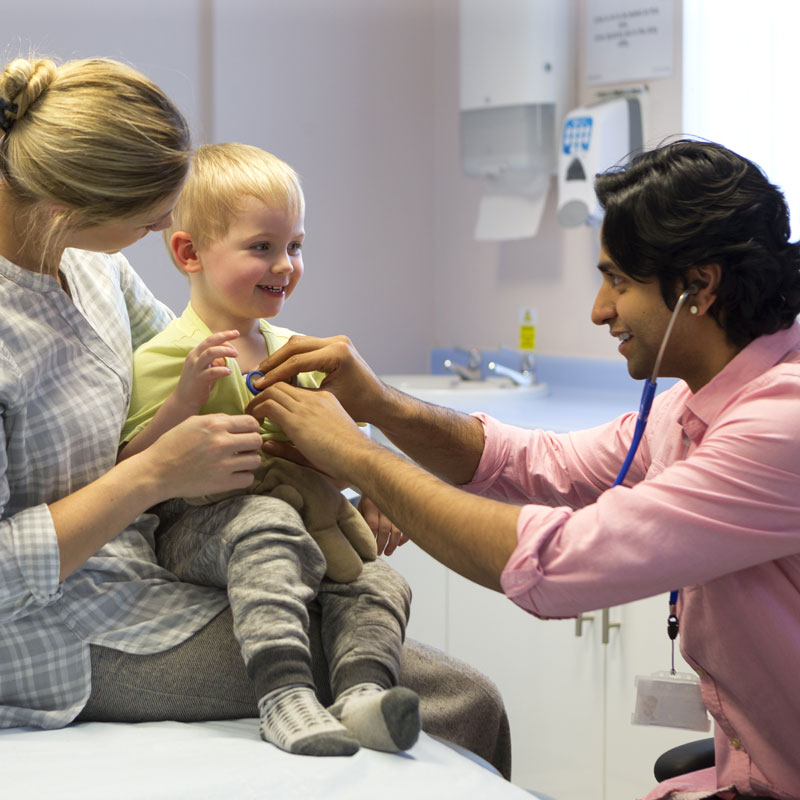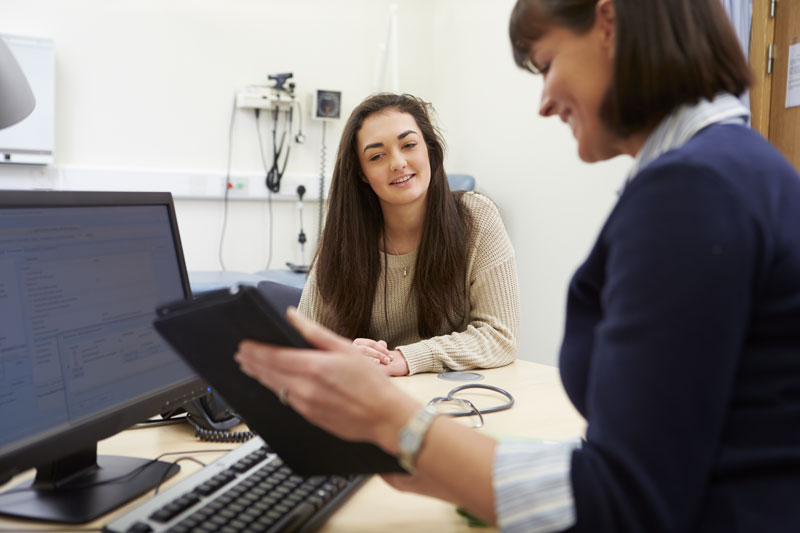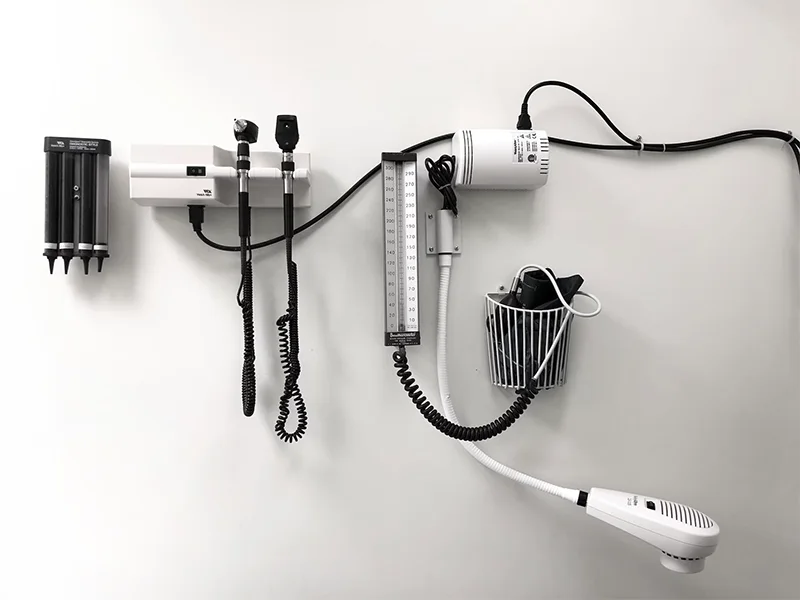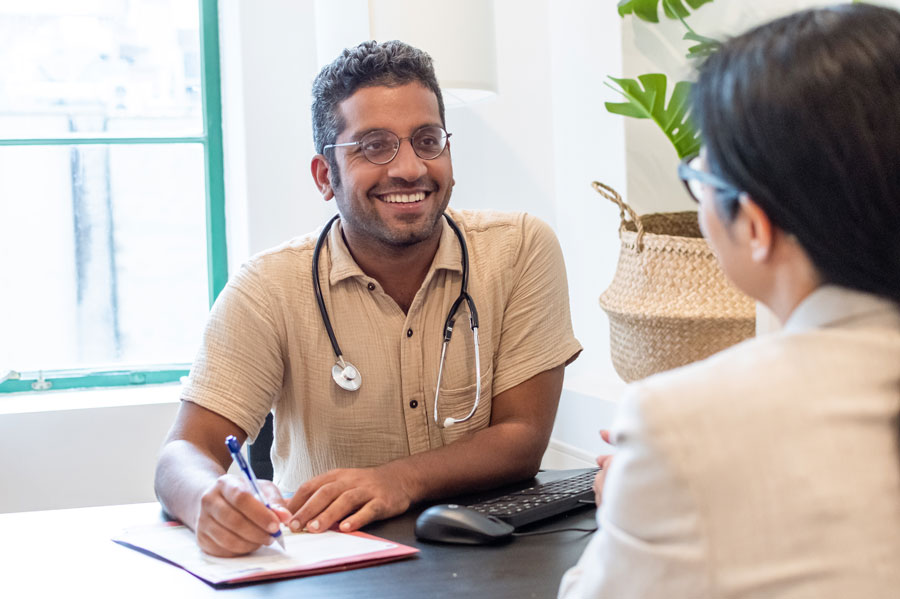Career Path and Education
What educational path and training are required to become a General Practitioner in Australia?
All General Practitioners (GPs) in Australia need to complete either an undergraduate or postgraduate medical degree. Upon graduation, they must undertake at least 2 years training in a teaching hospital before completing a minimum of 2 years as a registrar in general practice.
Are there any specific certifications or exams that one must pass to practise as a General Practitioner?
GP Registrars have to undertake a number of assessments to complete their training. The exact number and format of these assessments will differ between the two GP colleges in Australia. At a minimum, both include written and practical exams. In addition, GP Registrars are also assessed on a number of occasions by a fully-qualified GP who observes the registrar perform their normal daily tasks.
Once Registrars have completed and passed all these exams, and satisfied any other requirements of the college, they are eligible to become full members of one of the GP Colleges – either the Royal Australian College of General Practitioners or the Australian College of Rural and Remote Medicine.
Daily Responsibilities
What does a typical day look like for a General Practitioner?
A typical day for a General Practitioner can actually be very varied and no two days are ever the same! Most GPs will work during the day but some will start very early and some might finish very late. GPs will see people from all sorts of backgrounds with different ages, genders, ethnicities, education levels and family arrangements. It is possible to see a brand new baby and 90-year-old patient on the same day!
Presentations to a GP cover a wide spectrum – acute illnesses or injuries as well as chronic diseases and long-term issues. There will also be emergency presentations as well (e.g. myocardial infarction). GPs have lots of management tools at their disposal – advice and support, investigations, medications, and/or referrals. GPs often work with patients on issues around workers compensation, occupational assessments, drivers medical examinations, and NDIS and Centrelink applications.
GPs also work very closely with others who work in the practice. This includes practice nurses and administration staff. They might also work closely with other people involved in the care of an individual patient such as another specialist, pharmacists, allied health providers, family and carers.
What are the most common health issues that General Practitioners encounter?
The most common health issues that a GP encounters will depend on where they live, the time of year and if they have a special interest. Patients who live in a particular area might be more likely to get a particular condition (e.g. skin cancer in Queensland). In winter, patients are more likely to present with a cold or flu. Some GPs have special skills in certain areas so might attract more patients with that issue (e.g. mental health).
In general some of the most common conditions GPs will see are musculoskeletal, mental health, respiratory and skin conditions. GPs will also do a lot of work with preventive health.
Challenges and Rewards
What are the biggest challenges faced by General Practitioners in their daily work?
There are many challenges that GPs face. Some of the main ones are:
- Efficiency: It can be hard to do everything with a patient in a small amount of time and sometimes patients will come with multiple issues.
- Breadth of presentations: GPs need to know about a very broad range of medical conditions, medications, investigations, non-pharmaceutical treatments, as well as services available for patients in their local area.
What are the most rewarding aspects of being a General Practitioner?
Despite all the challenges, being a GP is a very rewarding job! You get to meet and help lots of different people. Unlike other medical specialities, GPs are more likely to get to know their patients over many years and across many health issues. They might get to know and treat a whole family. This all helps the GP to tailor their advice or treatment to best suit an individual patient.
Another great thing about being a GP is the variety. A GP will see lots of different patients in one day. A GP can also have a very diverse career and work in a number of different settings – clinics, hospitals, nursing homes, cities, remote areas.
Skills and Qualities
What key skills and personal qualities are essential for success as a General Practitioner?
Lots of different people will become GPs and they all have different qualities that make them good at their job in their own way. For anyone to succeed as a doctor, it is important to be determined and hard-working – this will help get you through all the exams and other challenges on the long road to becoming a doctor.
It is also important for GPs to have empathy – it is our job to listen and assist and support and the best way to do this is to be able to put yourself in your patient’s shoes.
Another important quality is curiosity – we need to solve lots of problems so we always need to be asking questions like a detective, as well as keeping ourselves up to date with the latest information.
How important is continuous learning and staying updated with medical advancements in this role?
All doctors are required to participate in continuing professional development and must undertake a certain number of hours every year. However, this is one of the great aspects of being a GP – having to stay up to date on a broad range of topics throughout your career.
Work-Life Balance
How do General Practitioners manage work-life balance, especially with the demands of the job?
It can be very hard for GPs to maintain good work-life balance because of all the demands of the job. Some GPs do it very well and some need a bit more practice. Nonetheless, it is generally possible for GPs to set their own hours, and try and have a bit of balance. Depending on the setting they work in, GPs are less likely to have on-call hours.
Are there opportunities for flexible working hours in this profession?
Of all the medical specialties, GPs have some of the most flexible working hours. Some GPs will work full-time but others will only work a couple of days a week. Some GPs will choose to start the work day early while others will choose to start late. Some GPs will work weekends or nights but many will not. Some GPs will even do other ‘non-clinical work’ like teaching or research, which helps them balance out the demands of doing clinical work with patients.
Advice for Aspiring General Practitioners
What advice would you give to someone who is considering a career as a General Practitioner?
Being a GP is one of the best jobs in the world. Every day is interesting! GPs are the cornerstone of our healthcare system in Australia and we will need many more GPs in the coming years. If you’re interested in people and solving problems, give it a go!
Are there any particular experiences or extracurricular activities that would be beneficial for medical students interested in this field?
Lots of people come to general practice from different backgrounds and have studied really diverse things so do not feel like you need to only study biology or medical sciences.
People skills are very important so any experience working with others will be helpful (e.g. volunteering at a nursing home, helping looking after children). Although this applies to many medical specialties, this is particularly true for GPs.
Sometimes it helps to get experience in a related job to see what you think (e.g. medical receptionist at a GP practice). You could also talk to your own GP and see what advice they offer.








